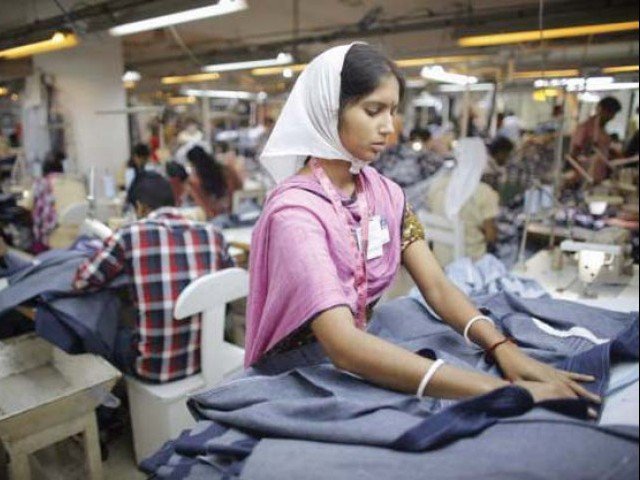
‘Efficient use of resources will boost RMG exports’
Bangladesh will have to improve the methods of using resources in the textile sector if it intends to reach the target of $50 billion in the readymade garments (RMG) exports. Speakers at a workshop on ‘Reducing Water & Recovering Heat’ highlighted the importance of improving the production efficiency of textile sector using sustainable methods.
The workshop that was held in Dhaka, was jointly organised by Partnership for Cleaner Textile (PaCT) program of International Finance Corporation (IFC), World Bank Group, and the Textile 

8 lakh RMG workers to get ILO training
Eight lakh ready-made garment (RMG) workers across the country are set to get benefit from an occupational safety and health training programme.
The occupational safety and health training programme launched in the capital city yesterday. Entitled the Essentials of Occupational Safety and Health (EOSH), is an innovative training package developed by the International Labour Organisation’s (ILO) International Training Centre in Turin, reports BSS.
The training programme is being delivered by the Bangladesh Employers Federation (BEF) with the support of the ILO and financed by Canada, the Netherlands and United Kingdom, according to a release.
![]()
Get women in unions to improve worker rights
Former child laborer Nazma Akter knew she would dedicate her life to improving workers’ rights when she joined her first protest outside a garment factory in Bangladesh when still a teenager several decades ago.
From the age of 11, Akter worked 14-hour days alongside her mother on the factory floor where she says unpaid wages and verbal and physical abuse were common.
After taking part in the protest in the capital Dhaka, she was beaten by police, fired from her job and blacklisted.
But now Akter, 43, campaigns to defend workers’ rights as head of Sommilito Garments Sramik 
Tech investment a must to achieve $ 50b target in RMG
Investment in technology is need of the hour to make the country’s apparel industry more competitive, sustainable and profitable, and also to achieve the target of earning the goal of US$50 billion in fashion exports by 2021.
Besides, infrastructure bottle necks and capacity constraints, which are the threat to prosperity, needs to be removed to attract more investment in industry, the life blood of the country’s economy.
The observations came after an intense brainstorming panel discussion at a seminar on “Bastra Shilper Adhunikayan (Modernization of Apparel Industry)” by ThreadSol, an innovative apparel software solutions provider in partnership with Independent TV, a leading private television channel, at the Radisson Blu Hotel in the city.
The objective of the seminar is to...
Factories use laser tech to make greener denim
The readymade garment sector is the driving force of the Bangladeshi economy, accounting for a massive 83 per cent of its exports in October-December 2015. The sector has resulted in Bangladesh enjoying a steady 6 per cent growth rate for more than a decade, but as the industry eyes the future, it will have to make major changes to make sure that growth is sustainable.
One example of these changes is how the denim sub-sector is using lasers instead of chemicals to “finish” the jeans.
The production of denim fabric includes making patterns, as well as getting the right colour for the most popular “blue” colour jeans. This requires washing the jeans using different types of chemicals.
It takes 100 litres of water to make an average pair of blue jeans according to industry insider...
RMG sourcing opts for free trade deal with India
When a well-known international sports brand approached Nagesh Sharma, who runs an apparel sourcing company from Gurgaon, with a huge order for tracksuit pants, Mr Sharma tried to source the product from India.
He found only one apparel factory could match the buyer’s specifications.
The primary problem, Mr Sharma says, is that India’s garment factories are too small; they typically have 150 people and about 80 machines.
The average factory in Bangladesh has 600 people. Mr Sharma eventually sourced the order  from a Taiwan...
from a Taiwan...
 from a Taiwan...
from a Taiwan...
















